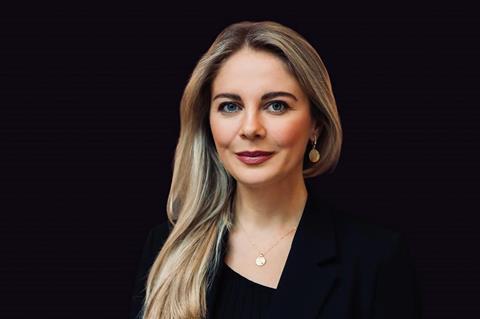
Who? Caitlin Harris, solicitor, Carter-Ruck, London.
Why is she in the news? Carter-Ruck, supported by human rights firm Bindmans, represented Shaima Dallali in an Employment Tribunal claim against her former employer, the National Union of Students, after she was dismissed as president over antisemitism claims. The case was settled this week, just before an eight-day final hearing was due to begin.
Thoughts on the case: ‘Shaima was elected president of NUS in March 2022, taking up her role in July 2022. She was dismissed in November 2022, leading to her tribunal claim. She is an anti-Zionist and proud pro-Palestinian. Now that the matter has been resolved, Shaima is looking forward to continuing to dedicate herself to the Palestinian cause and to serving her community.
‘I can’t comment on the terms of settlement as they are confidential. However, I refer to the joint statement released by Shaima and NUS, which is also set out in my firm’s press release.
‘The case involved profound and evolving legal issues around protected beliefs and the application of the Equality Act 2010. The recognition by NUS in the joint statement that pro-Palestinian and anti-Zionist beliefs may be protected beliefs, as may pro-Zionist beliefs, and that “as a private individual Ms Dallali is, and as president of the NUS she was, entitled to hold protected beliefs” is of real significance not only to Shaima and the student community but to society more widely. The statement could not have come at a more poignant time given events in Gaza. Shaima’s profound hope is that her case will encourage and inform robust but respectful dialogue on this uniquely emotive topic.’
Dealing with the media: ‘I work as part of a team that regularly acts in high-profile and sensitive disputes. The challenges of interacting with the media in a case as sensitive as Shaima’s, which has garnered national interest in the press, are all the greater and require an understanding not only of the nuances of what is a complex area of law, but also of what are highly complex, historic matters of faith, human rights and geopolitics. I am lucky to work alongside some of the most knowledgeable and experienced lawyers in that field.’
Why become a lawyer? ‘I left university with a (much loved) degree in English literature and some scepticism about what being a “lawyer” could achieve. I had a fierce determination to develop a skill-set where I could bring about real-world change and results. It has been a rollercoaster of achievements and disappointments since then. However, the desire to have an impact and seeing the results of my work mean something to our clients and beyond is what makes this job so worthwhile.’
Career high: 'I’ve worked with many clients who have shown enormous courage, resilience and dedication in the face of the kind of adversity that most never have to experience. I’ve worked on several matters where I’ve had to pinch myself in disbelief at the opportunity I’ve been given to contribute to an exceptional case. It’s hard to choose one. Witnessing and being a part of the spirit of these challenges is a privilege and an absolute life high.'































No comments yet